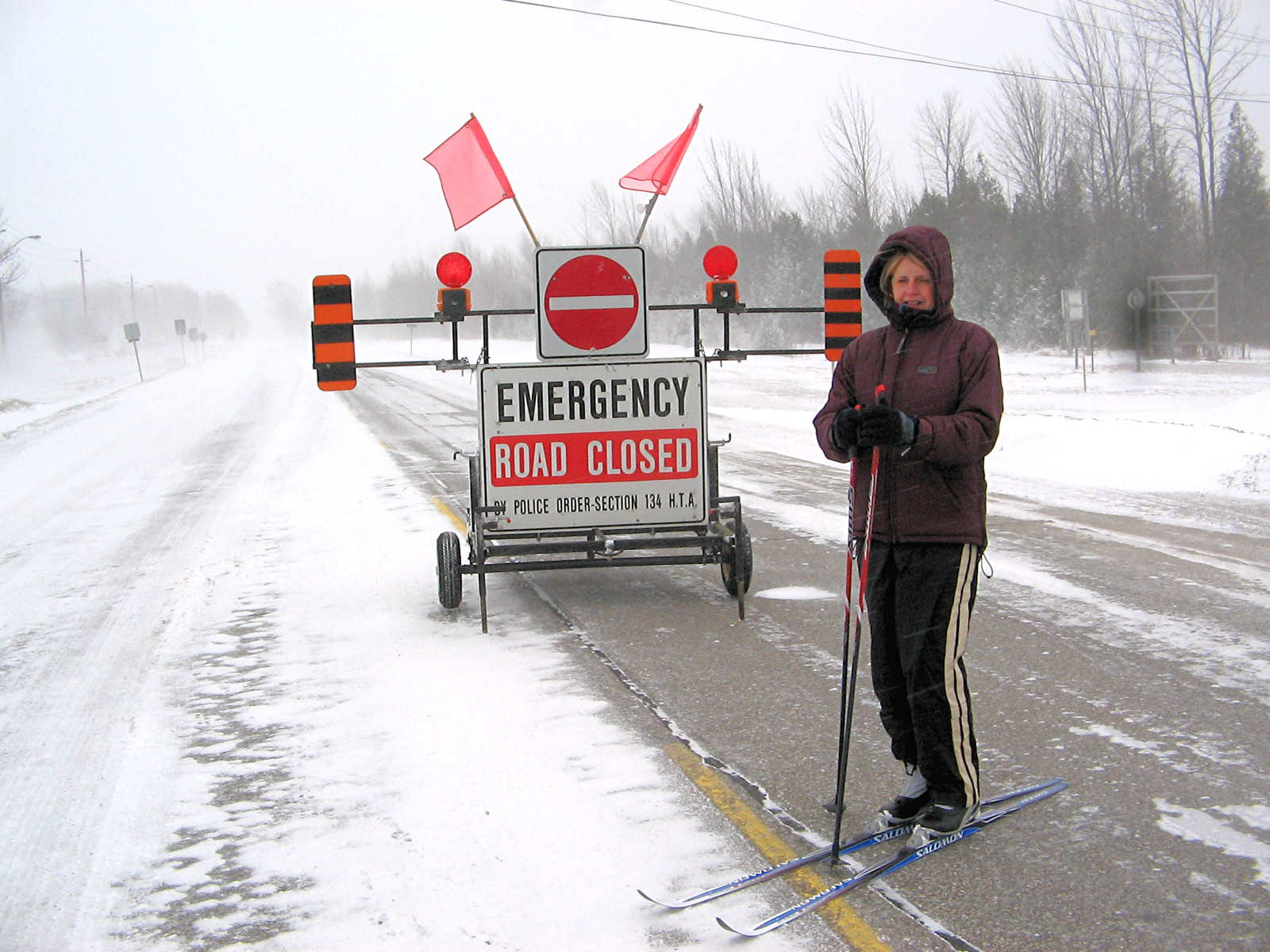“In the old days,” says grandma, pointing above her head, “the snow was up to here …” Perhaps she was recalling the fabled winter of ’47, when the snow never ended.
In mid-February a massive blizzard caused drifts as high as 18 feet in Port Elgin, blocking highways for three days and cancelling all trains. Three locomotives stalled 1.5 miles south of Turners in a huge drift. By month’s end all roads were closed for the third time in the month.
The worst was yet to come. In March Bruce County was hammered by snowstorms without let-up.
The Walkerton Herald-Times called the storm of March 3 and 4, 1947, “the worst blizzard of the present century. So heavy was the snowfall that local plows were unable to cope with the situation, those who went out being obliged to wade through snow waist-deep.” Mountainous drifts choked sidewalks on main streets; drifts up to four feet deep plugged side roads. Farmers’ fields became everyday roads for those with horse-drawn sleighs and cutters.
The Port Elgin Times said the worst storm conditions in 50 years completely cut off the town from the rest of the world for nine days.
The raging blizzard shut down the C.N.R. line into Port Elgin. A rotary snow plow hit a solid wall of snow and ice at the Turners cut and broke a cylinder head. The railway sent a monster plow from Quebec with a French-Canadian crew to liberate the blockaded town. When it broke through on March 12 a large crowd at the station cheered their rescuers.
Outside of Elsinore heavy snow 20 feet deep filled the long grade on Highway 21. The Department of Highways rotary plow bogged down, unable to clear any snow deeper than seven feet. A crew of 50 men shovelled ahead of the plow, lowering the drift to the required seven feet. At one spot they found an abandoned car under five feet of snow. The highway was finally opened to Southampton on March 11.
On Monday, Elgin Feick had a truck sent over from Owen Sound to Elsinore loaded with 20 cases of fruits and vegetables. These were picked up by Neil Nickason of Arran Lake, who brought them 15 miles by sleigh to Port Elgin.
Mail came by sleigh, too. The first mail since March 1 arrived in Port Elgin on March 11 by sleigh from Southampton.
At times of crisis, men are driven to extreme lengths. Which explains why on Saturday morning, March 8, 10 men with five toboggans walked from Southampton to Port Elgin, collected a load of beer from the local warehouse and dragged their precious cargo home.
The snow load collapsed the roof of the Underwood Skating Rink, cancelling skating for the winter. In Saugeen Township, farms were without power for four days due to blown fuses in the transformer at Paisley. Farmers had to draw water for their stock and do all milking by hand. Finally, a plane was sent up from Walkerton with a crew to replace the fuses.
An airlift of vital supplies saved Kincardine, Port Elgin and Southampton when they were faced with a bread famine—the bakeries had run out of yeast. Standard Brands of Toronto hired a ski-equipped Norseman, piloted by George Phillipps, superintendent of Algonquin Park. He flew from Algonquin to Toronto, took on a load of yeast and alighted at the farm of W.A. Mitchell. As the plane swooped down from the sky, school children and grown-ups rushed out to welcome their saviour.
And after a week of no news, a plane from Owen Sound dropped bundles of the Sun Times near Port Elgin station.
Snow continued to fall throughout March. On the 25th another blizzard pummelled Bruce County. Again, the railroad was shut down and Highway 21 was completely blocked from Owen Sound to Kincardine. The C.N.R. plow finally broke through on March 28, followed by the passenger train which had been stalled at Pinkerton for three days. The passengers were accommodated in private homes and heaped praise on the Pinkerton folk in making them comfortable.
In March, Highway 21 was open for only 11 days, the Elora Road just six days. And when all the snow melted in April, flooding was rampant throughout the county.
The Walkerton Herald-Times summed up the winter of 1947: “… in years to come the present generation when commenting on wintry blizzards can prelude their remarks with ‘Now back in ’47, the year of the big snow…’”



